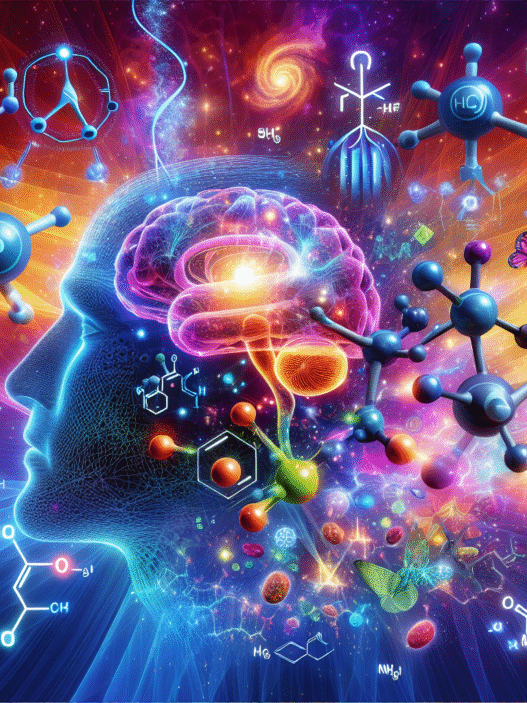Understanding N-Acetyl Cysteine (NAC)
N-Acetyl Cysteine (NAC) is a powerful antioxidant that serves multiple roles in health and wellness. It is a derivative of the amino acid cysteine and is known for its ability to enhance the body’s levels of glutathione, a crucial antioxidant that protects cells from damage. This section discusses the functionality of NAC and its various benefits.
Exploring NAC Functionality
One of NAC’s primary functions is its capacity to regulate glutamate levels, a vital neurotransmitter in the brain. Abnormal glutamate levels can contribute to various mental health conditions, making NAC a potential adjunctive treatment for such issues (Healthline).
In addition to its neurological properties, NAC acts as an antioxidant, helping to neutralize free radicals that can lead to oxidative stress. This function is particularly important in combating chronic diseases and promoting overall health. NAC also aids in detoxification processes in the liver, making it beneficial for individuals concerned about liver health and detoxification.
| Function | Description |
|---|---|
| Regulates Glutamate Levels | Helps maintain balance, potentially impacting mental health conditions. |
| Antioxidant Properties | Neutralizes free radicals, reducing oxidative stress and supporting overall health. |
| Detoxification Support | Enhances liver function and aids in the elimination of toxins. |
Benefits of NAC
The benefits of NAC extend beyond its basic functionality. It has demonstrated positive effects in various health areas, including:
-
Mental Health: Given its regulation of glutamate levels, NAC shows promise in treating disorders such as Alzheimer’s and Parkinson’s diseases.
-
Respiratory Health: NAC acts as an expectorant, alleviating symptoms of respiratory conditions like chronic obstructive pulmonary disease (COPD) and bronchitis. It helps improve lung function and decrease inflammation.
-
Fertility: Studies have indicated that NAC improves male fertility, particularly in cases of varicocele. Supplementation has been linked to better semen integrity and higher pregnancy rates in partners.
This compelling range of benefits highlights NAC’s multifaceted roles in promoting health and wellbeing. It is particularly appealing for longevity seekers looking to enhance their health span and manage conditions associated with aging. For a deeper understanding of its effects, readers can refer to our article on what is nac n-acetyl cysteine used for?.
NAC in Mental Health
N-Acetyl Cysteine (NAC) offers promising benefits in the realm of mental health, particularly regarding its regulation of glutamate levels and its impact on various mental health conditions.
Regulation of Glutamate Levels
One of the critical functionalities of NAC is its ability to help regulate glutamate levels in the brain. Glutamate is a neurotransmitter essential for communication between neurons. However, imbalances in glutamate can lead to various mental health issues. NAC may play a role in stabilizing these levels, potentially mitigating conditions such as bipolar disorder, schizophrenia, obsessive-compulsive disorder, and substance use disorder (Healthline).
Studies have shown that balancing glutamate can be crucial in managing mental health disorders. Through glutamate regulation, NAC may contribute to better overall brain health and improved cognitive function, making it an interesting option for mental health support.
Impact on Mental Health Conditions
The ability of NAC to influence mental health extends beyond the regulation of glutamate. Its antioxidant properties help replenish glutathione, a crucial antioxidant in the body that protects against oxidative stress. This function is particularly relevant in addressing neurodegenerative conditions such as Alzheimer’s disease and Parkinson’s disease.
The following table summarizes the mental health conditions NAC has been linked to, along with the proposed benefits:
| Mental Health Condition | Benefits of NAC |
|---|---|
| Bipolar Disorder | Helps stabilize mood swings |
| Schizophrenia | May reduce symptoms and improve cognitive function |
| Obsessive-Compulsive Disorder | Could alleviate compulsive behaviors |
| Substance Use Disorder | Might aid in reducing cravings and relapse |
| Alzheimer’s Disease | Potentially slows cognitive decline |
| Parkinson’s Disease | May alleviate motor symptoms and improve quality of life |
NAC shows considerable potential in addressing mental health concerns, giving hope to individuals seeking alternatives for managing their conditions. For those interested in the broader applications of NAC, including its effects on anxiety, check out our article on does NAC help with anxiety?.
NAC in Respiratory Health
N-Acetyl Cysteine (NAC) has gained recognition for its potential benefits in respiratory health. It plays a vital role in providing relief for various respiratory conditions and has shown promise in improving lung function.
Relief for Respiratory Conditions
NAC is known for its ability to relieve symptoms associated with chronic respiratory conditions such as chronic obstructive pulmonary disease (COPD) and bronchitis. It acts primarily as an antioxidant and expectorant. By thinning mucus, NAC helps clear the airways, making it easier to breathe. This advantage encourages better lung health and comfort in individuals suffering from chronic respiratory issues.
| Condition | Benefits of NAC |
|---|---|
| Chronic Obstructive Pulmonary Disease (COPD) | Reduces mucus viscosity, improves airflow |
| Bronchitis | Eases coughing, enhances mucus clearance |
Improvement in Lung Function
Research has demonstrated that NAC can lead to significant improvements in lung function. Regular intake of NAC has been associated with increased pulmonary function scores and a reduction in exacerbations of respiratory conditions. The antioxidant properties of NAC help decrease inflammation within the lungs, contributing to overall respiratory health.
In a study highlighting the efficacy of NAC in respiratory health, participants experienced a marked reduction in symptom severity and an increase in overall lung capacity after NAC supplementation. Close monitoring is essential, especially when combined with medications that lower blood pressure, as NAC may also have this effect (WebMD).
For further information on the wide-ranging benefits of NAC, including its applications in liver health and detoxification, explore our article on what is NAC N-acetyl cysteine used for?.
NAC in Fertility
N-Acetyl Cysteine (NAC) has been gaining attention for its potential benefits in fertility, especially among men dealing with specific conditions such as varicocele. Research indicates that NAC may provide significant advantages in enhancing male fertility and addressing issues related to varicocele.
Enhancement of Male Fertility
Studies suggest that NAC supplementation can improve male fertility by enhancing various semen parameters. NAC has been shown to promote better semen quality, which is essential for successful conception. One notable study revealed that NAC can lead to improved sperm integrity, mobility, and overall quality, making it a valuable supplement for those looking to increase their chances of fathering a child (Healthline).
| Semen Parameter | Improvement with NAC |
|---|---|
| Sperm Count | Increased |
| Sperm Motility | Increased |
| Sperm Morphology | Improved |
Benefits for Varicocele Cases
Varicocele, a condition characterized by enlarged veins in the scrotum, is known to negatively impact male fertility. NAC has demonstrated beneficial effects in managing this condition, especially after surgical intervention. Research indicates that patients receiving NAC post-surgery experienced notable improvements in semen parameters and higher pregnancy rates compared to a control group (PubMed).
| Study Outcome | Results Post-NAC Supplementation |
|---|---|
| Semen Parameters | Significant improvement noted |
| Pregnancy Rates | Increased compared to control |
These findings underscore the role of NAC in supporting male reproductive health, particularly for individuals facing challenges associated with varicocele. For those interested in learning more about NAC’s overall uses, visit our article on what is NAC n-acetyl cysteine used for?.
NAC and Hormonal Effects
Understanding how N-Acetyl Cysteine (NAC) influences hormone levels can help clarify its potential benefits for reproductive health, especially among those concerned with hormonal balance.
Effects on Testosterone and FSH Levels
Research indicates that NAC supplementation can significantly influence testosterone and follicle-stimulating hormone (FSH) levels, particularly in women diagnosed with polycystic ovary syndrome (PCOS). NAC was found to decrease total testosterone (TT) levels while increasing FSH levels. This adjustment can potentially improve reproductive system function in women experiencing hormonal imbalances associated with PCOS (PubMed).
| Hormone Changes | NAC Effects |
|---|---|
| Total Testosterone (TT) | Decreased |
| Follicle-Stimulating Hormone (FSH) | Increased |
These findings suggest that NAC could play a crucial role in regulating hormonal levels in individuals with PCOS, potentially benefiting their overall reproductive health.
Impact on Estrogen Metabolism
Beyond testosterone and FSH, NAC may also positively influence estrogen metabolism. Studies have shown that NAC supplementation can lead to increased estrogen levels when addressing issues related to PCOS. Additionally, NAC has demonstrated the ability to rebalance estrogen metabolism by inhibiting the formation of estrogen-DNA adducts, which may help prevent cancer initiation linked to estrogen.
| Estrogen Effects | NAC Impacts |
|---|---|
| Estrogen Levels | Increased |
| Cancer Prevention Potential | Yes |
These findings reveal NAC’s potential role in not just hormonal balance but also in cancer prevention, making it a valuable supplement for those focused on longevity and health.
For more insights into the applications of NAC, explore our sections on what is nac n-acetyl cysteine used for? and is nac good for your liver?.
Interactions and Considerations
When using N-Acetyl Cysteine (NAC), it is crucial to be aware of potential drug interactions and safety monitoring requirements. Understanding these factors can help individuals make informed decisions regarding their health and supplementation.
Potential Drug Interactions
NAC may interact with several medications, which could alter their effectiveness or increase the risk of adverse effects. Some notable interactions include:
| Medication | Type of Interaction |
|---|---|
| Nitroglycerin | Increases the effects of nitroglycerin, potentially leading to headache, dizziness, and lightheadedness. |
| Activated Charcoal | May decrease NAC’s effectiveness in preventing poisoning from medications like acetaminophen (WebMD). |
| Blood Pressure Medications | NAC might lower blood pressure, necessitating careful monitoring of blood pressure levels when used in combination (WebMD). |
| Anticoagulants | Could slow blood clotting, increasing the risk of bruising and bleeding (WebMD). |
It is important to consult with a healthcare provider before starting NAC, especially for individuals taking any of these medications.
Safety and Monitoring Requirements
While NAC is generally considered safe for most people, it is important to monitor usage and be aware of any side effects. Some individuals may experience gastrointestinal issues, headaches, or allergic reactions.
Routine monitoring of blood pressure is recommended for individuals combining NAC with blood pressure medications to avoid hypotension. Furthermore, those on anticoagulants should have their blood clotting monitored regularly to prevent complications.
Individuals with certain conditions, such as asthma or bleeding disorders, should seek medical advice before starting NAC. Understanding who should not take N-Acetyl Cysteine is also crucial for safe usage.
Overall, while NAC offers various health benefits, it is important to remain vigilant about potential interactions and ensure proper safety measures are taken. For more detailed information on NAC, including its uses and effects, check our article on what is NAC N-Acetyl Cysteine used for?.





















